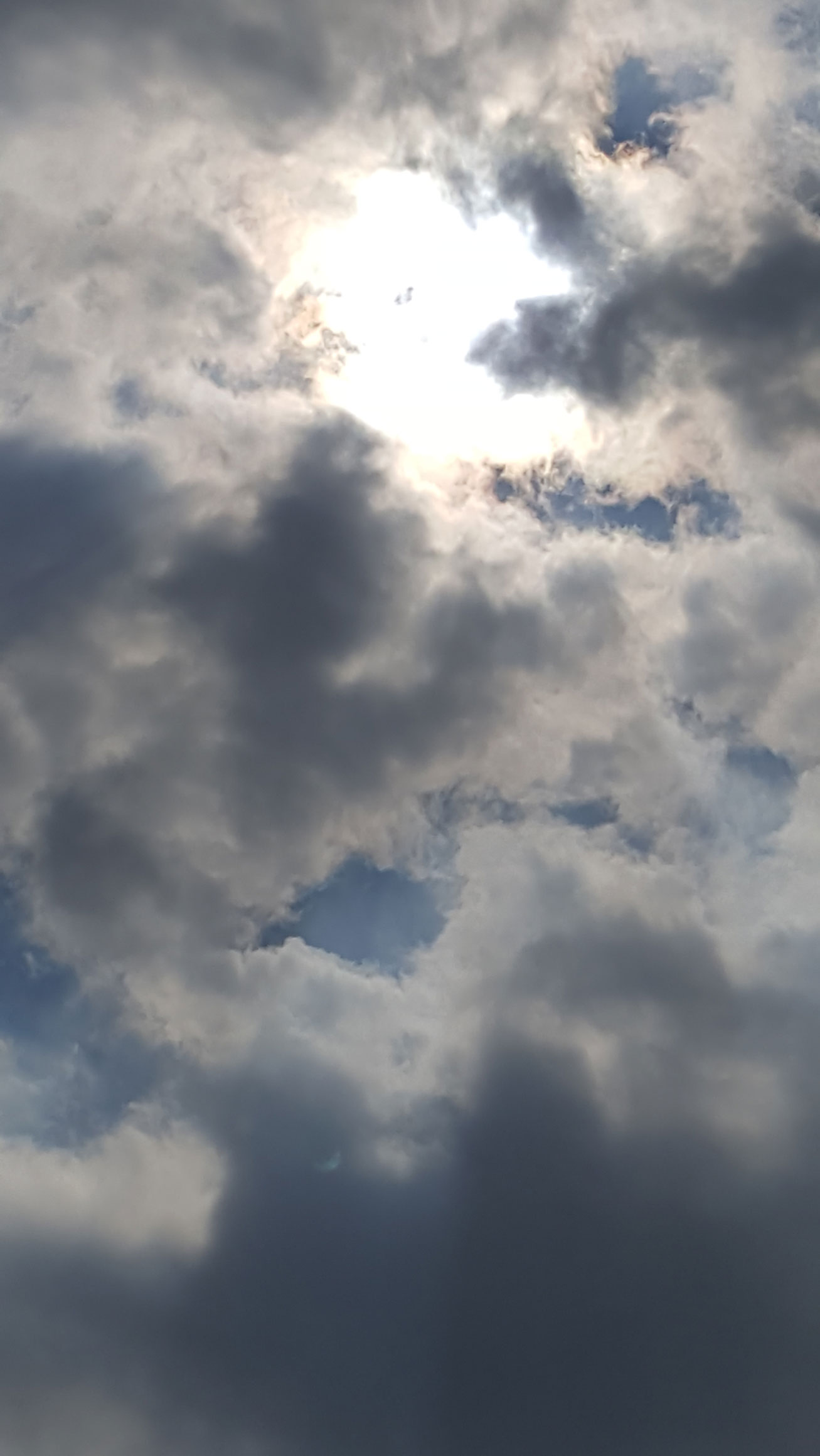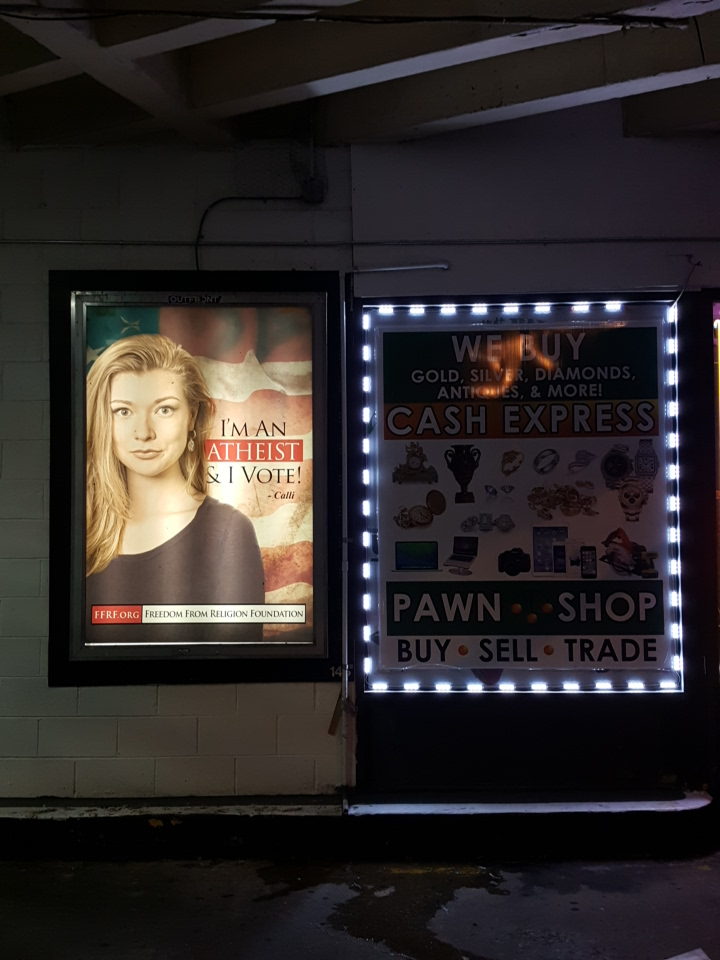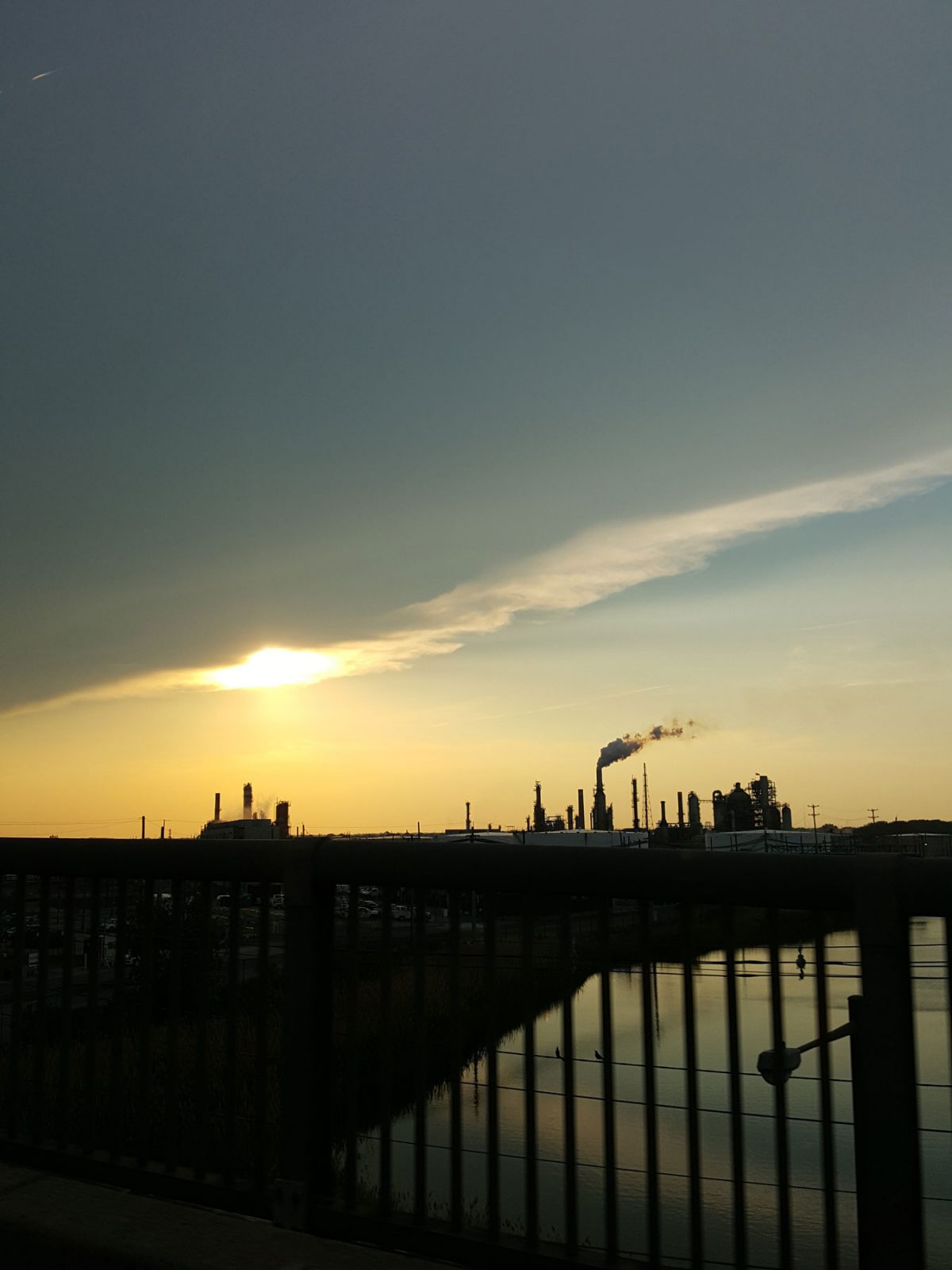She turned to me with half-lidded eyes, her mouth turned upward like a cat’s face. Her hands rested on the worn wooden surface beneath her congregation of plants. We needed nothing to see with, just the full moon’s cool blue cast. The slopes and lines of her shoulder and hips and chest shifting under the distant light made me feel calm and welcome. I thought about how many seasons would pass before I could be with her again like this.
“I’m thinking about killing myself, kid. They’re going to send us off to Mars. And all these plants I live with? They’ll die. The atmosphere can’t shield us from the radiation, which of course they’re lying about. You saw the leaked data dumps.”
“Yeah.” I was unsure of how she expected me to participate with such a topic.
“I’d rather end my life ritually than get sold off and shipped out to die in pain from harsh radiation of another” — Her voice rose sharply — “of a whole other fucking planet, kid!”
She faced me in full. Tendrils of thin cascading palm leaf brushed her cheeks and shoulder. I looked at the fear set through her body — the tension holding her up — a live individuated Earth organism.
Yes — how could they send Earth organisms like Loma to Mars with no provisions for integration with the Martian noosphere? I felt scared for her and didn’t know what to say. What could I say? She is dominant in verbal language and I am not. Yet another layer of difficulty one encounters as a third generation Slow Stepper™. We were not engineered to be talkers but we have to be now that people think it’s too cruel to leave us shriveled up on Mars. I’ve heard rumors that the versions after me will have improved speech facility. My skin is pigmented like a dying purple seed husk and slightly iridescent. Every third season I leave Earth to grow the Martian irrigation network at Garden City. The radiation doesn’t transform me in the ways that Loma fears.
My name is Inri.
Loma’s generation fought for organisms like me to have individual autonomy rights. I’m not so sure Loma foresaw this outcome, where I am contributing to a structure that will usurp her way of life — maybe — it is still all conjecture, this “shipping out” business — I feel perplexed.
“Loma,” I start, holding out my arms, “Why don’t you come to me and I can stroke you. There is a lot of tension.”
Her face contorts angrily then fills with woe. She plods over. I enjoy the rustle of the plants as she leaves their embrace and comes into mine. She wears a sweater knit from recycled fibers, whose loops stretch across many small provocative rips. Her skin smells pleasant with the musks that her glands produce. She is soft with hair. She runs her fingers and long nails along my arms. She calls me serpent because that is how my skin feels to her. I have no hair. I have no decisive genitals either. For Loma I wear a prosthetic. She likes it when I use my mouth on her. My generation has tongues and interior ridges like teeth to vocalize language. My generation does many things compared to our predecessors. We are very different. But through our shared cell memories I can know their experiences. It upsets Loma how different the generations are in the few years we have existed, and yet here we are in this predicament.
“Ugh, you’re so special, Inri. You’re so beautiful and special,” she laments into my shoulder.
“Because I am yours?”
“No!” She recoils. “Mine? I’m not — nobody belongs to anybody. You’re free to do as you wish and I count myself lucky to have you in my life.” Her voice rises at the end again. I do not point out that no one ever asked my generation if we wanted these individual freedoms. These personal autonomy rights. She fought for us to have that. I know.
My favorite with Loma is her body writhing against the genital prosthetic I wear. She engorges herself with it. I love Loma’s body and I love the sensations she experiences on it. Human-identified Earth organisms put out so much rich sensory information they don’t find valuable. What Loma values is my height (I am tall), and my size and my heft and musculature. She says I have a perfect balance of male and female energies (I do not know what being either of those is like so I cannot say).
Loma values the way I do whatever she asks of me. I value her attention. I value the heat exchange of her body’s life processes interacting with mine. It frenzies and ebbs with thousands of generations of existence on abundant Earth. There is nothing on Mars I interact with that is as aggressive.
So I wonder what her death might feel like.
“Loma, would you still prefer to die than be shipped to the node, even if I would be there with you?” She sighs loudly and says she looks forward to the release from the prison of her own body in this mortal realm, the joining back with the cosmos. And I do not tell her I used to know that too before she fought for me and my rights.
“It’s just so complicated, Inri. There was no way I was gonna stand by and watch the creation of a lifeform made entirely to support the colonialist expansion into space. Okay? And there’s no way I’m going to let myself be carted off for another sick attempt at capitalist consumption.” She looks at me with a determined scowl as I wonder, isn’t that what happened? I was created and here we are. She sees I am thinking and squeezes my shoulders for attention.
“Look, if we don’t resist we’ll be eaten by the machine!”
Loma says this often and I am never sure what she means. Even with hormones and protein regimens that endow Loma with heightened sensory perceptions of her environment (holistic integration, her friends call it), her behavior and her speech are dominated by a kind of selfhood. She seems numb to the feedback from her cyborg body. She describes herself as alienated even though she is part of many symbiotic geographic and cultural systems. She uses group words but doesn’t explain who her groups are, and is rarely willing to learn me when I ask. Maybe this kind of isolation works for her in resisting the machine. She has not answered me.
“Are you serious in your desire to die, Loma?”
“If they try to ship us to the node, yeah.” There is a determined twist in her brow. I am not so sure that she is prepared. She exhales a clouded sense of revulsion and lays her head against my chest. Her long fingernails graze my bare back and it excites me. She feels good — her heat and her smell and her attention. This is her way of grooming me to play. We spend much of our time playing. Often she invites me over to have space in the room like one of her many flourishing plants, and I like that. I think Loma considers that I am in love with her in a human way. There are non human-identified humans that talk about love and they say ‘mutual survival,’ and I love Loma in this way. But she does not seem to want mutual survival because she wanted me and now she wants to die.
“Inri, it’s the full moon tonight. I want to please you.”
Sometimes I hear Loma talking to her friends about how beautiful I am when she pleases me; what sounds I make, the way I react. There are how-to sexual relationship guides that Loma and her friends have made. Small pamphlets that describe our bodies and how to touch them and what to expect. Having a relationship with a serpent like me is desirable as an alternative to the non-consensual, consumption-based lifestyle expected of mainstream human society. That’s what her pamphlets say. I get confused by the words mainstream and human and society put together like that. I have trouble understanding why Loma describes our relationship in the terms of a society she doesn’t want to belong to. How does our relationship have importance among the non human-identified societies? And the other systems of life organization among the microbes and plants? And the subjugated peoples too who aren’t even allowed to participate. They live and die powering the machine Loma hates with their labor, and I am confused why she and her friends do not also fight for their autonomy rights.
“You blossom like a flower when I touch you like this, Inri. That’s why you’re so special,” Loma coos over my supine body. Her two hands have splayed me open where my legs join my torso. She strokes me over and over. Develops a rhythm. The room fills with the scent of my musk, which Loma inhales slowly, deeply. She loves to smell me this way. I wonder what the other plants in her room sense under this beautiful moonlight in this warm space. My predecessors were never so deliberately stimulated. They had very low interaction rates with higher energy peoples. They relied on chance encounters, looking attractive, and mutual cohabitation. They were initially conceived as a modified rhizome that would have a symbiotic relationship with dormant bacteria of the Martian soils. We did not have a bipedal form until the second generation’s twelfth version. Now we look more acceptably human and people want to touch us. We like that.
“I love fucking you,” Loma breathes across my ear. In this moment I think, I may have confused her attachment to me. I think I have misunderstood her grammar this whole time. Maybe I am also misunderstanding what she means when she says she wants to die. I feel sad. I feel alarmed. I cannot tell what her plants feel because using words has distanced me from them.
The moon was setting when I gathered myself to leave in the morning. Loma slept and I felt uneasy because she could not leave her bed to see me off. Times before I spent whole days curled up around her, comforting and being appreciated. Perhaps she forgot now I would be leaving for a long time. Maybe she was too sad because she would die and I wouldn’t see her in this form again. I watched her sleep. When I said, “I have to go, Loma,” she pushed herself up wearing her cat’s face and stretched her arms around me. She was hot from rest and her breath and breasts and hair were all I felt. One last blossom, she said into my neck. She inhaled me deeply and kissed me below my ears. Then she let go and slid back amidst her sheets, leaving her sweat smell on my body.
“I’ll come back to you if you want, Loma,” I said in the sleepy room.
“I’ll miss you, Inri…” she said from her covers.

I return to Garden City for the growing season.
My generation collects in our familiar Martian crater, by a mountain very few people on Earth care to know of, and with our engineered life processes we encourage the redevelopment of the fourth planet’s latent ecosystems.
We do not use words to speak and we do not have the strong body heat of Earth organisms. Surrounded with each other, rooted in cooperation, we share. Those of us who met lovers have much to exchange: Human-identified love relationships are pleasing. We learn about intimate behavior from our partners and that’s beneficial. But they do not seem mutual. We compile the non-mutual interactions, trying to sense the greater network of forces affecting them and why they occur. Then we must let it be.
This growing season is a critical stage and we are here because we want to grow. We do not concern ourselves with any reality beyond the present. Besides, we do not have the energy to expend. My feelings for Loma go dormant.
As the planet turns I enjoy the sheer undulations of the sun, the microbial exchanges, the slow shifting pleasantry of existence, and I am not again confronted by the human word concepts of work and rights until I have detached from the rhizome and boarded the transport where there are human-identified earth people manning the craft.
This is what I think at first: Are they human identified? As they secure me for the voyage back to Earth, something about them strikes me as different. These humans speak slow, though they speak. More than I do. Maybe they are new hybrids. Maybe I am so freshly departed from the rhizome that I have forgotten how humans can look and I am projecting my expectations.
When the operator checks my security harness, I think I see their clay colored skin shimmer as their hand draws away. Iridescent like me? Loma’s lamenting body appears from my sleeping memories — this is a new generation of slow steppers? A new version? I am unsure why we would be changed to also man spacecraft…
The iridescent person will not make eye contact with me.
I do not feel well, so I sleep.
When I am released from the specimen collection and sterilization wards and into the Earth public environment I am so enthralled by the heat of the ground and the intensity of color that I release my scent from the stimulation. It draws several bugs close to me. I laugh. It is just past the summer season. The air is cool. The weight of the gravity is comforting. Rain is falling. The twilight moon is a crescent shrouded in veils of swiftly passing storm clouds. There is so much information everywhere. I have not spoken except to pass through my clearances from Mars, and as I venture to form words between my ridges and tongue, what comes out is Loma. I liked to say her name so much — it felt so pleasing to form and vocalize — but this time it feels like a word that means leaving. I stand still because I realize I have left and I am not sure what I am supposed to connect with now. I feel so disoriented. I wish I could root to the Earth for comfort from these sensations, but I was not made to do such a thing here. I am alone.

I am back in the city enclave by the sister rivers, near the communal home where I am provided living space. I am waiting on the trolley platform and it is rush hour. There are young children wearing book bags everywhere, laughing and bumping around, seeking the attention of their parents. I realize today is the customary half-day that precedes tomorrow’s holiday and that’s why there are so many small children in abundance. Normally at this time of day there are only workers and the teenage indentured. The children give off good energy. They are very aware, maybe because they are not yet strong with language. They look at me with large eyes, daring or shy or unsure, depending on how their parents regard me.
I do not believe that Loma was shipped off from Earth. I did not encounter any humans while I was growing, but there was also no reason that I would have. We do not experience time on Mars in the same ways we do on Earth, and we only interact with what is in relationship with our rhizome. And there are hardly any habitable places for humans on Mars yet, not with so many growing seasons to come.
The trolley pulls up. It is a full car and we are packed in shoulder to shoulder. It feels comforting. The children are having fun — they seem to enjoy the density like I do. Having their presence fill the air makes me feel good. There are not many children or families where the home is. My little home. Where Loma lived there were a few but it seemed as though her neighborhood was changing from the old families to the new political collectives like she belonged to.
Loma…
The trolley is making its way through her neighborhood. The stop-bell dings and a fresh stream of people board and leave. I remember leaving at this stop many times to see her. This time, I find a seat. I feel a pang of longing for my rhizome on Mars. I would be connected to all these people if they were part of my rhizome. But here everyone is a free individual. They stare ahead and do not make eye contact. I am like them now. Free and autonomous. Loma fought for my rights.
This story originally debuted in Topside Press’s 2017 anthology, Meanwhile, Elsewhere: Science Fiction & Fantasy from Transgender Writers . The timestamp on this post reflects the date when the final print-ready draft was completed.


